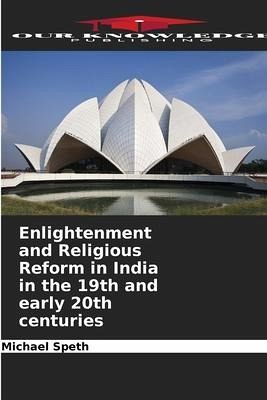
Enlightenment and Religious Reform in India in the 19th and early 20th centuries
Versandkostenfrei!
Versandfertig in 6-10 Tagen
33,99 €
inkl. MwSt.

PAYBACK Punkte
17 °P sammeln!
The establishment of British colonial rule set the stage for the impact of European ideology on Indian minds. The life of Indians was still dominated by religious ideas and caste customs, so new socio-political ideas often took the form of reformist and sectarian teachings. In this connection, ideas of reform of Hinduism (Brahmo Samaj India, Arya Samaj), Sikhism (Nirankari, Namdhari, Singh Sabha) and Islam (Wahhabism, Farazi, Sayyid Ahmad Khan) spread. Nevertheless, with the development of social thought and the activation of Indian socio-political organizations, the independent role of religi...
The establishment of British colonial rule set the stage for the impact of European ideology on Indian minds. The life of Indians was still dominated by religious ideas and caste customs, so new socio-political ideas often took the form of reformist and sectarian teachings. In this connection, ideas of reform of Hinduism (Brahmo Samaj India, Arya Samaj), Sikhism (Nirankari, Namdhari, Singh Sabha) and Islam (Wahhabism, Farazi, Sayyid Ahmad Khan) spread. Nevertheless, with the development of social thought and the activation of Indian socio-political organizations, the independent role of religious reformist sects and societies gradually declined. At the beginning of the 20th century, their religious activities receded into the background, while their political, reformist and national-liberation activities came to the fore.












